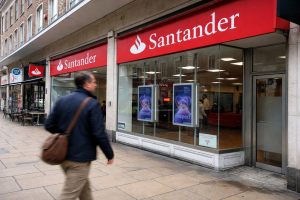
Finance
Across Asia, governments are taking distinct approaches to regulating stablecoins digital assets designed to maintain a fixed value, often pegged to a traditional currency. As the global race to define crypto’s legal framework intensifies, Asia has become a testing ground for innovation and oversight. The contrasting strategies of Singapore, South Korea, and other financial hubs reveal how regulation could shape the future of digital banking, payments, and financial stability.
Stablecoins bridge the gap between traditional finance and cryptocurrencies. They allow users to transact digitally while avoiding the extreme volatility of assets like Bitcoin or Ethereum. In the banking ecosystem, stablecoins could eventually rival deposits or even complement existing payment systems, offering faster, cheaper, and borderless transactions.
However, their growth raises concerns about transparency, credit backing, and systemic risk. Regulators worry that a sudden loss of confidence in a major stablecoin could disrupt not only digital markets but also the broader financial system — particularly if banks or payment firms hold significant exposure.
Singapore has positioned itself as one of the most forward-thinking financial centers in Asia. Its Monetary Authority of Singapore (MAS) recently introduced a detailed regulatory framework for stablecoins issued in the city-state. The rules require full backing of tokens with high-quality liquid assets, strict capital standards, and transparent redemption rights for holders.
This approach blends innovation with consumer protection. By granting clarity to licensed issuers while excluding unregulated players, Singapore aims to attract responsible innovation. Local banks are already exploring how stablecoin infrastructure could integrate with traditional checking accounts, cross-border payments, and digital banking platforms — signaling how mainstream finance and blockchain may soon converge.
In contrast, South Korea has taken a more conservative stance. Regulators in Seoul are tightening scrutiny on crypto markets and emphasizing investor protection over rapid innovation. The government is drafting legislation to classify and regulate stablecoins as part of a broader digital-asset framework, prioritizing financial stability and anti-money-laundering safeguards.
While this approach may slow market adoption, it reinforces confidence in South Korea’s financial system — one that values strict oversight of credit flows and banking integrity. Domestic banks remain cautious, preferring to partner with fintech firms under controlled pilot programs rather than issue their own digital tokens.
Despite their differences, both Singapore and South Korea share a common objective: ensuring that digital currencies evolve within a trusted financial environment. Their diverging strategies highlight a broader regional debate — whether innovation should lead regulation, or regulation should define innovation.
Closing Insight:
As Asia becomes a focal point in the global stablecoin debate, the region’s diverse regulatory paths may determine how digital banking evolves worldwide. Singapore’s openness could attract fintech investment, while South Korea’s prudence might set global standards for safety and accountability. The balance between innovation and regulation — between opportunity and oversight — will define the next chapter of Asia’s financial transformation.
 Previous Post
Previous Post
Explainer: Why the UK May Raise Taxes on Banks — And How It Could Impact Loans, Deposits, and the Wider Economy
 Next Post
Next Post
Huntington to Buy Cadence Bank for $7.4 Billion: A Strategic Push into the South and Texas

February 26, 2026

February 26, 2026

February 26, 2026

February 26, 2026

SKN | UBS Revises UK Gilt Supply Outlook: What Slower Borrowing and Higher Issuance Mean for Sovereign Allocation

SKN | Barclays Lowers BXP Target but Maintains Overweight: What This Signals About Commercial Real Estate Risk Calibration

SKN | Citigroup Inc. Completes Sale of Russian Operations, Boosts Capital Position